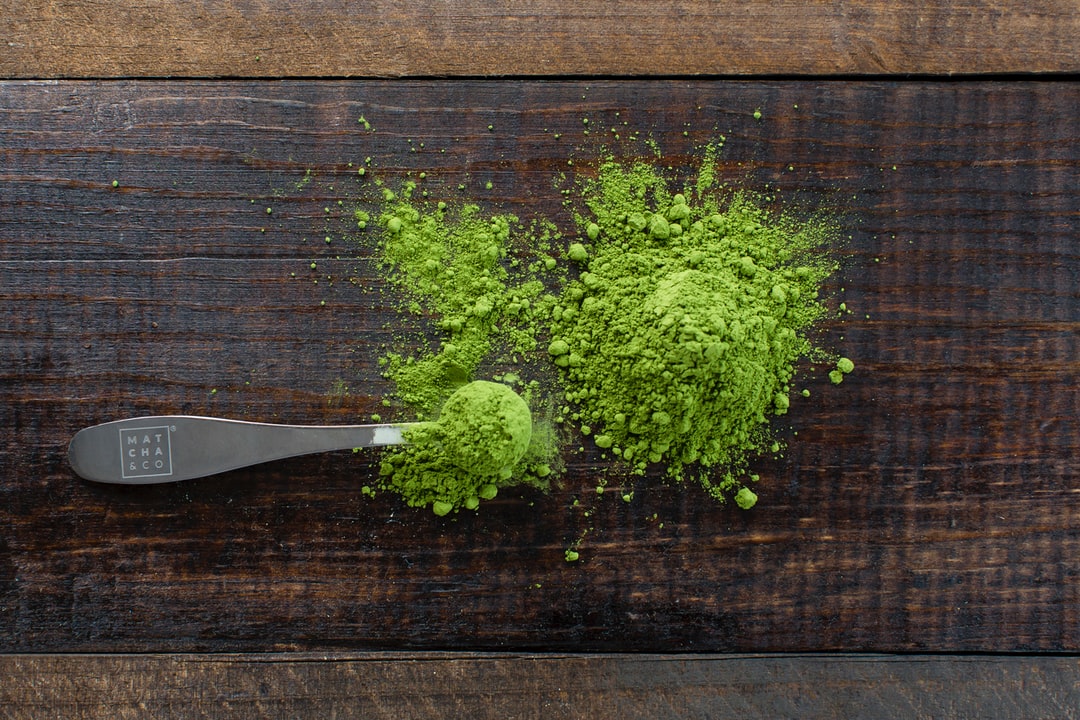When shopping for green tea powder, you might have noticed that there are two types; sencha powder (a.k.a funmatsucha 粉末茶) and matcha powder. Although they may look identical, there are several key differences. If you don't know these differences, you may not know which one to choose!
The most important point is that matcha powder is made from tencha tea leaves, whereas Sencha powder is made from sencha tea leaves. Now let's dive into all the differences.
Matcha
Matcha is a fine tea powder that is made from Tencha (碾茶).
Tencha has a different appearance from regular Japanese green tea. At first glance, it looks a little bit like dark green seaweed flakes. Tencha isn’t commonly available in the market, as it is almost always reserved for making matcha.
Making macha from tencha is a long process that involves many steps.
This starts in the growing stage. In Kyushu (specifically Yame, Fukuoka) tea plants are shaded for over 16 days and therefore are not exposed to strong sunlight. As a result, the leaves are softer and richer in L-theanine, which is a type of amino acid that creates the umami sensation. It is also known for having relaxing properties.
Did you know? The shading period varies according to region. For instance, in Kyoto, the tea plant is shaded for anywhere between 20 - 30 days.
Once harvested, the tea leaves are steamed and dried. Tencha leaves do not undergo a rolling process like other Japanese green teas. Finally, all stems and veins are separated from the leaves. The leaves are then ground with a stone mill, and transformed into the familiar matcha, an extra smooth, fine powder with particles of about 10 microns! (A micron is one millionth of a meter.)
Matcha is much more expensive than sencha powder, as it is more labour intensive.
Sencha Powder (a.k.a. funmatsucha)
Sencha powder is, as its name indicates, made from sencha. Sencha is a type of steamed green tea that Japanese people enjoy daily.
The production process of sencha is quite different from tencha. The major difference is that the tea leaves are constantly exposed to sunlight (or shaded for less than 7 days). When the tea leaves are exposed to the sun, L-theanine transforms into catechin. Catechin is a type of polyphenol that is responsible for the refreshing astringency, but also has various health benefits such as protecting the body against free radicals.
The leaves are usually harvested by machine, and then they are rolled, steamed, and dried. After grinding the sencha using a machine or tea mill, you have sencha powder. Since sencha is a whole leaf tea (meaning that the veins and stems are retained), the particles of this tea are larger, ranging between 20 - 40 microns.
Sencha powder is usually more affordable than matcha, as it is less labour-intensive.
Which Tea is Better?
Honestly, it really depends on your preference and purpose!
We recommend matcha if...
- you're intending to use powdered tea to prepare luxurious desserts
- you love whisking a bowl of matcha. With sencha powder, it's difficult to achieve creamy froth.
- you want to enjoy the health benefits of L-theanine.
We recommend sencha powder if..
- you're looking for an affordable green tea powder and intending to use it for everyday cooking and baking
- you want to enjoy the health benefits of catechin
- you value freshness; generally speaking, matcha is more vulnerable to changes in quality than loose leaf tea once you open the container. Our suggestion is to grind your own sencha powder with a tea mill to ensure that your tea powder is as fresh as possible!
---
We hope this comparison helps you choose the best tea powder for your needs!
